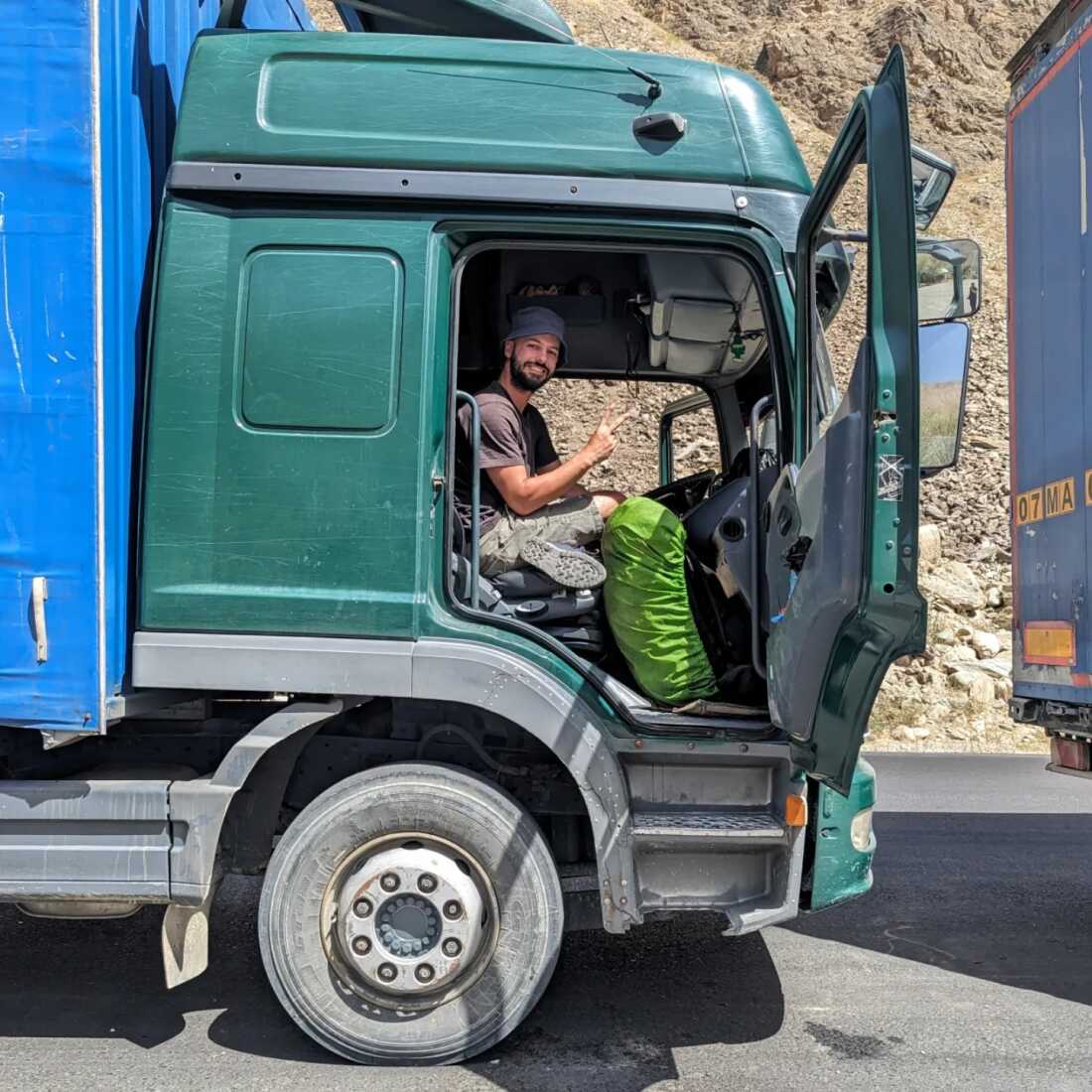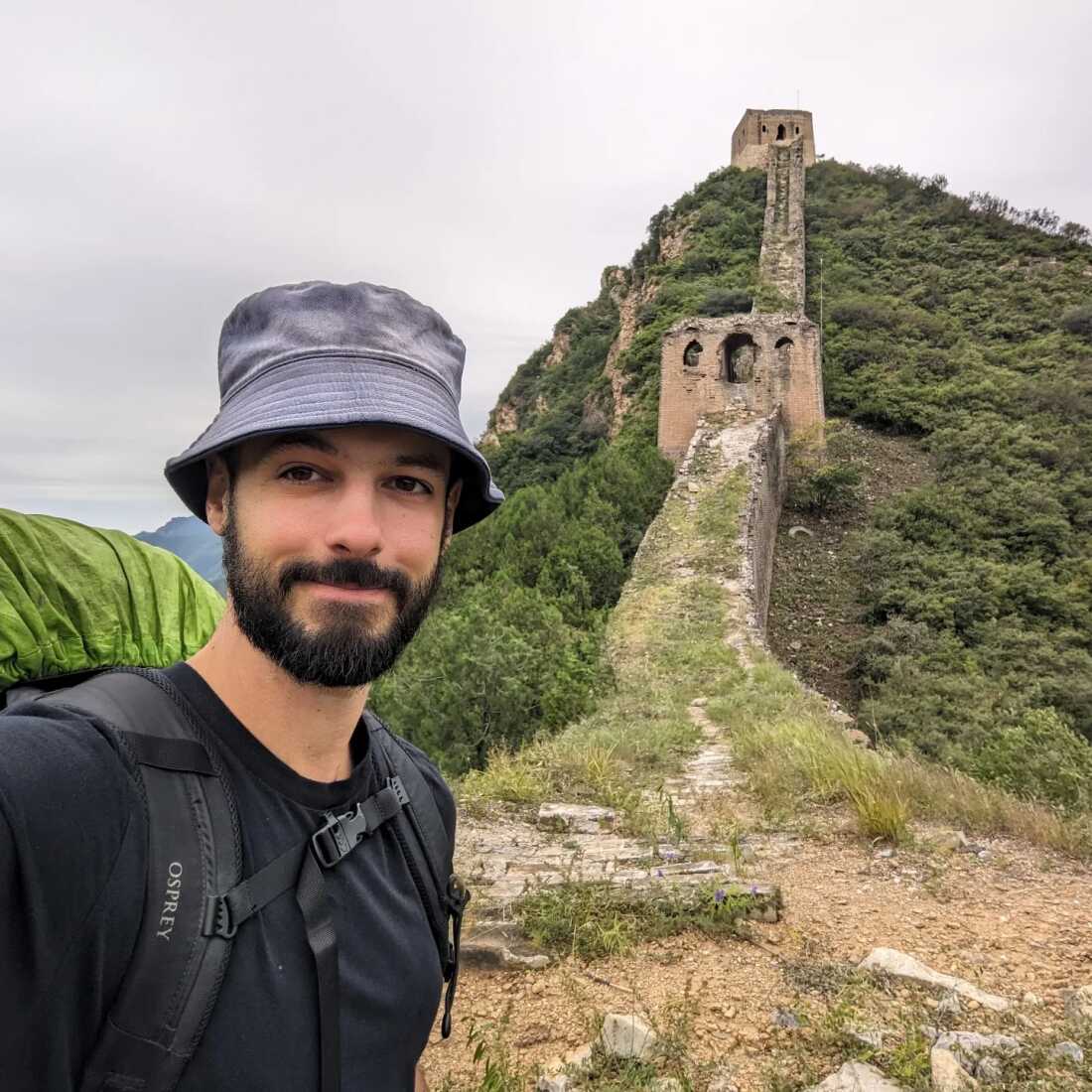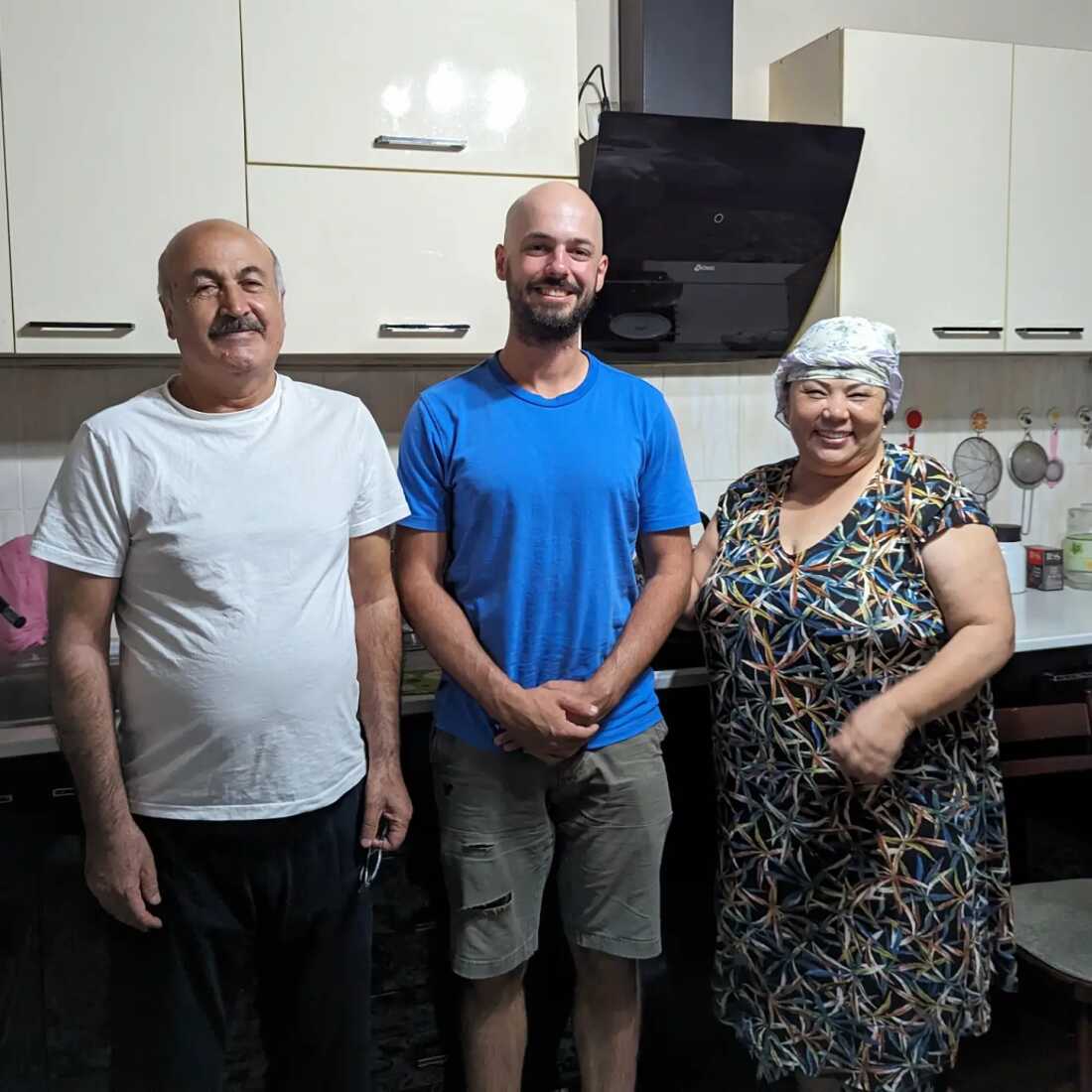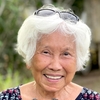Omar Nok took a 46-hour train ride across Kazakhstan in a platzkart — a Soviet-era sleeping carriage that lacks the luxury of privacy between beds — to get from the western part of the country to its capital, Astana.
Omar Nok
hide caption
toggle caption
Omar Nok
Omar Nok embarked on a nine-month journey from Egypt to Japan with one rule: no planes.
The restriction, he found, turned out to be anything but limiting. He camped on the Great Wall of China, rode horseback through the mountains of Kyrgyzstan and “chilled” with the Taliban in Afghanistan.
Taking other modes of transport, he said, “allows you to see more of the world.”
“It’s more eventful. Things can happen on the way,” Nok said. “I want to see as much of the world as I can and not skip anything.”
Nok, a 30-year-old Egyptian German based in his native Cairo, said he left a steady job in finance so he could use the time (and the money he saved up) to travel.
Before this trip, he’d never traveled east of Egypt. This past week — 275 days later — he made it to Tokyo, his finish line capping a 28,700-mile zig-zag route that began in February.
To get there, he traveled by foot, hitchhiking, bus, train, ferry, motorcycle, sea barge, cargo ship, bicycle, camel and horse. He’s diligently documented his daily adventures on his Instagram account, which has ballooned to more than 750,000 followers. His only constant was his backpack, no heavier than 28 pounds, filled with about a week’s worth of clothes.

Nok hitchhiked across the mountains of Tajikistan in early September. A truck driver who picked him up and drove him about 14 hours took this photo of Nok during a break on the Pamir Highway.
Courtesy of Omar Nok
hide caption
toggle caption
Courtesy of Omar Nok
A “no spoilers” travel plan
When it came to planning the trip, Nok had his destinations mapped out, but his daily itinerary was loosely plotted. He made a point to not research every destination. Keeping himself in the dark a bit when traveling, he said, helps him limit his expectations and stay open to new people, places and experiences.
“The places I have been impressed by the most have been places that I did not look at pictures of beforehand or maybe I looked at pictures but a long time ago,” he said.
Instead, he puts his trust in the locals — and himself.
“Let’s say I’m hosted by someone and I know that beforehand — then I don’t do any research. They can tell me what is there to see and do,” he said. “Because I try as much as possible to, let’s say, avoid spoilers.”

On a visit to the Great Wall of China, Nok spent the night in a watchtower, seen in the background, located in an unrestored section of the historic landmark.
Courtesy of Omar Nok
hide caption
toggle caption
Courtesy of Omar Nok
“If [I] find a place I want to see someday, I always save it on the map,” he added. “My map is full of bookmarks. Then I trust my past self that put the bookmark in the first place to go and see that place.”
Hospitality and connection in unexpected places
With some countries, he said, it was impossible for him not to come in with preconceived notions. His perceptions of some countries in the Middle East and Central Asia, for example, were colored by news coverage that has long cast the region as unsafe and conflict-ridden. But his actual experiences, he said, upended those expectations.
He left with a different impression. What stood out to Nok during that stretch of his journey — to Iran, Afghanistan, Uzbekistan, Kazakhstan, Kyrgyzstan and Tajikistan — was the warmth and generosity of the people there.
“I think they share these similarities — that hospitality is like a code in their culture. Not just something nice — it’s more like of a code,” he said. “In countries most people probably would be hesitant to visit, [they] actually have the friendliest people you could meet.”

A local family in Uzbekistan’s capital city of Tashkent hosted Nok, center, in August. The son of the couple pictured, who showed him around the city, took this photo at their home.
Courtesy of Omar Nok
hide caption
toggle caption
Courtesy of Omar Nok
Aided by a language translation app, his first night in Iran well illustrated that. He arrived during Nowruz, Persian New Year — a peak time for hotel stays and travel there.
“By the time I cleared customs immigration, it was 1 a.m.,” he recalled. “So, there is no accommodation place and I’m without internet because of internet restrictions there and so on. And I’m like, ‘OK, what now?’ “
He was sleepily backpacking the streets when a local stopped him: “He was curious and after just a couple of questions, he offered me to go into his car so that he would drive me somewhere with accommodation,” Nok said.
“Obviously, it’s a big no for 99% of people,” he added. “But I followed my instincts and my instincts told me he’s a good person and just wanting to help.”
“He told me: Hey, why don’t you come sleep at my place? I’ll call my brother, I’ll call my friend, and we’ll make a nice night of it, evening out of it.”


After they shared a dinner together, his host insisted that Nok stay in his bed while he took the couch.
“That’s just like day one in Iran. So it was like, wow, what a welcome,” he said. “And it was representative of also of the people I met there.”
Early on in the trip, Nok made his private account public after some nudging from friends. He said his posts have fueled a positive dialogue in the comments section.
“I could see it always, everywhere in the comments — the viewers of the journey were learning that there are good people everywhere. It doesn’t matter the country, race, religion. We as humans, we have more in common than we have differences.”
He hopes to turn his online popularity into sponsorships to fund his future travels.
Having crossed his finish line, he’ll go back home soon to Cairo — with plans to rest up for his next adventure.
How will he get back home?
“I booked the flight already,” he said. “It was a weird feeling at first — it’s weird having traveled for that long and then, like, ‘How do I book a flight again?’ “